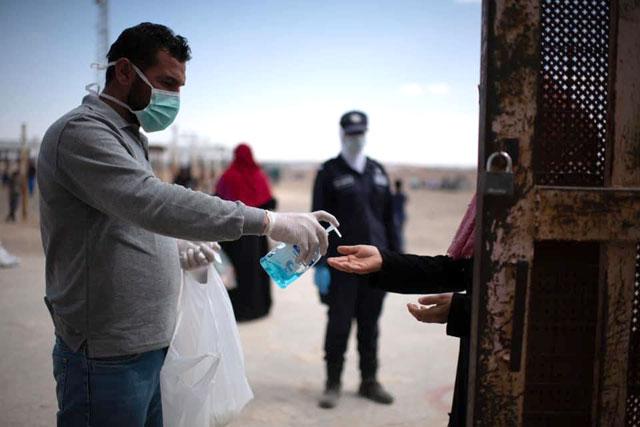- Local News
- Sun-2020-09-13 | 03:18 pm

Nayrouz News Agency :
As five refugees from Zaatari and Azraq camps have tested positive for the coronavirus, the Ministry of Health is conducting thousands of tests and has trained medical staff in the camp in this regard, UNHCR Representative in Jordan Dominik Bartsch said.
"Ever since the onset of coronavirus in Jordan, the spread of cases in refugee camps was an eventuality we had been preparing for. An eventuality we hoped would not happen, but nonetheless, one we are ready for,” he said in a statement.
Through the UNHCR’s established protocol all refugees who are confirmed positive will be transported to the Dead Sea isolation area. Contact tracing will take place and their friends and families asked to self-isolate, Bartsch said.
"At UNHCR, we have built quarantine and self-isolation areas in Zaatari and Azraq camps specifically for this purpose. Right now, families who were in contact with the individuals who tested positive this week are being housed at these sites,” he continued.
Testing and treatment centres have also been established in both camps. If refugees have symptoms, the UN agency urges them to approach these centres or contact the UNHCR’s hotlines for advice, he said.
He noted that in the event of an increase in the number of cases, clinics run by NGOs, namely the IMC and the MSF, "are ready to jump into action”.
"Our cooperation with the Ministry of Health and Syrian Refugee Affairs Directorate [SRAD] has been crucial during this time. We are incredibly grateful that refugees continue to be included within national health systems here in Jordan,” Bartsch said.
"The developments this week have obviously been a worrying situation for all, but especially for refugees living in the camps. Crowded spaces and cramped living conditions make social distancing difficult. We are encouraged by the fact that refugees are doing all they can to minimise the risk of transmission,” he added.
UNHCR, together with partners, supports the government’s efforts, he said, adding that masks and hygiene items are being distributed, shelter repairs are being carried out to make isolating at home more comfortable and food is directly delivered to refugee homes.
Movement in and out of the camps has been limited while testing continues, and only essential humanitarian staff are allowed access, the UNHCR representative said.
He expressed the agency’s gratitude to donors "who have already provided flexible funds to enable UNHCR to prepare for this time”.
"Fighting this pandemic requires vigilance from us all. No effort must be spared to avoid more cases among one of the most vulnerable populations in Jordan.”









